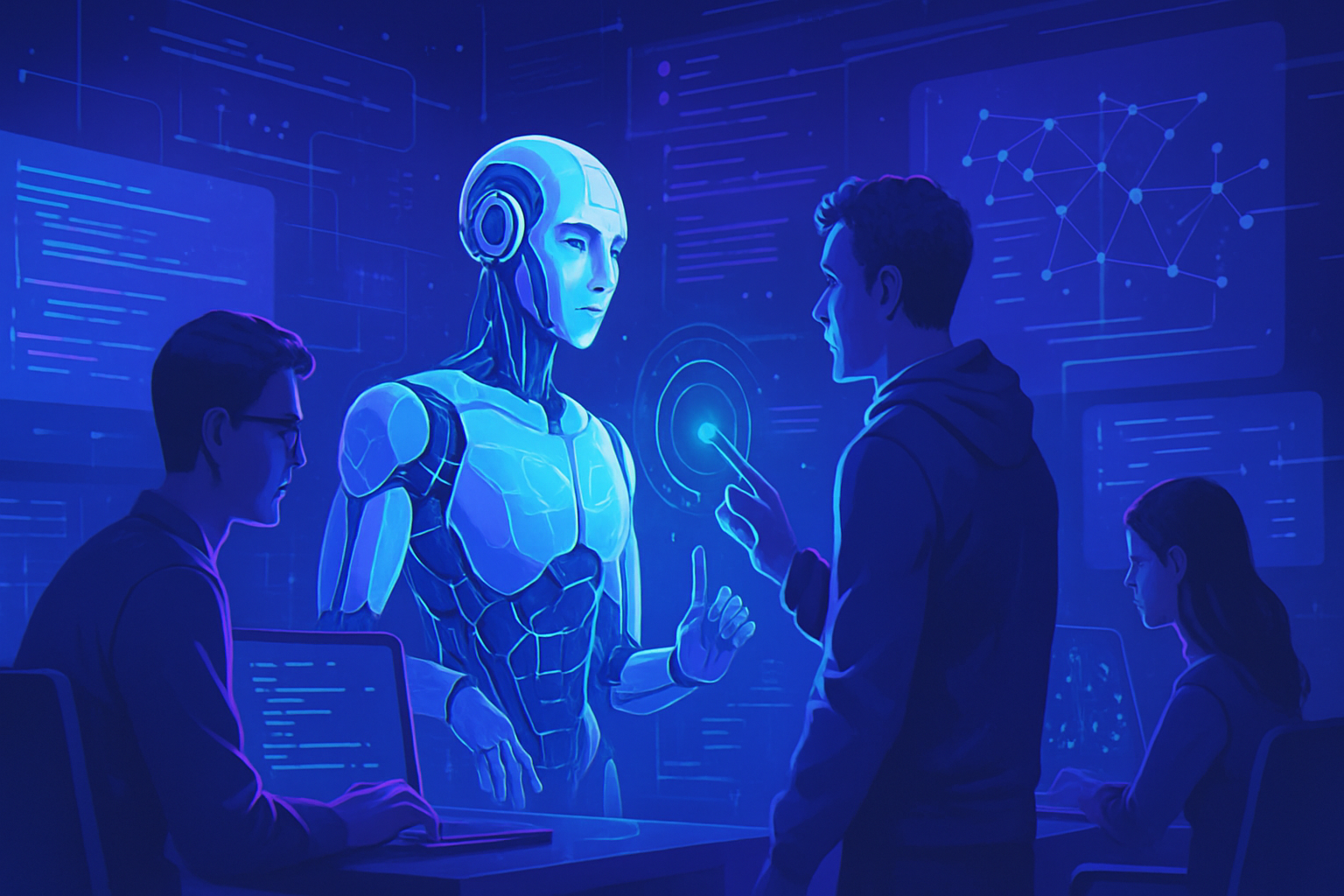Digital Revolution Underway: artificial intelligence is redefining the software development landscape, leading to profound upheavals. The stakes are multiple, ranging from increased productivity to the transformation of work methods. The Google DORA report reveals a growing adoption of AI among developers but also highlights organizational challenges. Understanding these dynamics becomes imperative to adapt to the future and ensure sustainable and high-performing development.
The Adoption of AI by Developers
The annual DORA report from Google indicates a massive adoption of artificial intelligence by developers. About 90% of industry professionals plan to integrate AI into their work by 2025. This increase of 14.1% from 2024 reflects a growing willingness to integrate AI tools. More than half of the survey participants claim to use AI for more than two hours a day.
Satisfaction Related to the Use of AI
The results show notable satisfaction in the use of AI among developers. About 80% of respondents believe that AI improves their productivity, while 59% notice a better quality of their code. This phenomenon seems to indicate a transformation of development practices.
The Role of AI: Performance Amplifier
Google defines AI as a performance amplifier within development teams. In high-performing environments, it enhances existing practices, while it exacerbates dysfunctions in less favorable contexts. The report portrays seven archetypes of teams, ranging from “Foundational challenges,” often under stress, to “Harmonious high-achievers,” who fully benefit from AI tools.
Consequences of AI on Prototyping and Delivery
The integration of AI increases the delivery cadence of projects but also leads to increased instability in deployments. Only 40% of respondents, corresponding to archetypes 6 and 7, manage to effectively leverage AI tools. This context demonstrates that AI will only be beneficial if organizations adopt solid practices.
Recommendations for Successful AI Integration
To optimize AI adoption, the report offers several recommendations. A clear AI policy must be established to define responsibilities and usage limits. A healthy data ecosystem ensures quality and accessibility of information, thereby avoiding silos.
Develop Robust Infrastructures
Companies should invest in a high-quality internal platform, developed as a product and continuously improved. Considering user needs is essential, as it ensures that the impact of AI is beneficial for both developers and clients.
Optimized Work Cycle
The report emphasizes working in small batches to reduce risks associated with automation. By fragmenting tasks and applying version control, teams can enhance the effectiveness of AI projects. This involves rigorous monitoring of the code generated by artificial intelligence.
Cultivating Experimentation and Learning
Fostering a culture of experimentation is vital to stimulate innovation. Encouraging rapid feedback loops and technical curiosity allows for the valorization of new initiatives.
Reflections on the Future of Developers
The DORA report highlights a future centered around AI for developers. The influence of artificial intelligence will reshape development practices and require constant adaptation of teams. A lack of clarity in adoption could lead to unwanted disruptions, underscoring the importance of a thoughtful strategy in AI integration.
Questions and Answers on the Future of Developers Facing AI in 2025
What share of developers will adopt AI by 2025?
According to the Google report, 90% of developers plan to use artificial intelligence in their work by 2025, representing a significant increase.
How does AI influence the productivity of developers?
The report indicates that 80% of respondents believe that AI enhances their productivity, enabling them to accomplish more tasks in less time.
What are the main difficulties faced by development teams regarding AI?
Struggling teams are often affected by legacy systems and heavyweight processes, limiting their ability to leverage AI and exacerbating their existing issues.
Which archetypes of development teams can benefit the most from AI?
The “Pragmatic performers” and “Harmonious high-achievers” archetypes are best positioned to maximize the benefits of AI, representing about 40% of the report’s respondents.
What recommendations does Google propose for successful AI adoption?
The Google report provides advice such as defining clear AI policies, creating a healthy data ecosystem, and fostering a culture of experimentation.
How does AI amplify the strengths and weaknesses of development teams?
AI acts as an amplifier: it strengthens positive practices in high-performing teams while highlighting dysfunctions in less effective teams.
Why is it important to have a robust technical infrastructure when implementing AI?
A robust technical infrastructure is essential to support development teams and ensure that AI operates effectively and reliably.
What is the importance of fragmenting tasks in the context of AI?
Fragmenting tasks helps limit the risks associated with automation and ensures shorter delivery cycles, which is particularly vital when using AI.
How can teams ensure continuous integration of AI tools into their workflow?
By applying rigorous standards for code generated by AI and establishing version controls to maintain code quality.
What are the main benefits of adopting AI for developers in 2025?
The main benefits include increased productivity, improved code quality, and an ability to solve problems more quickly.






